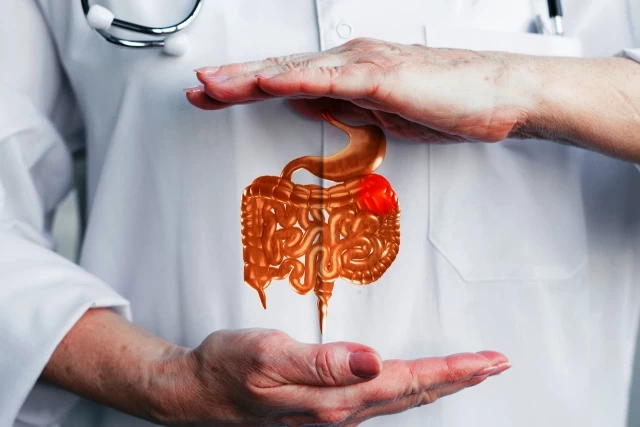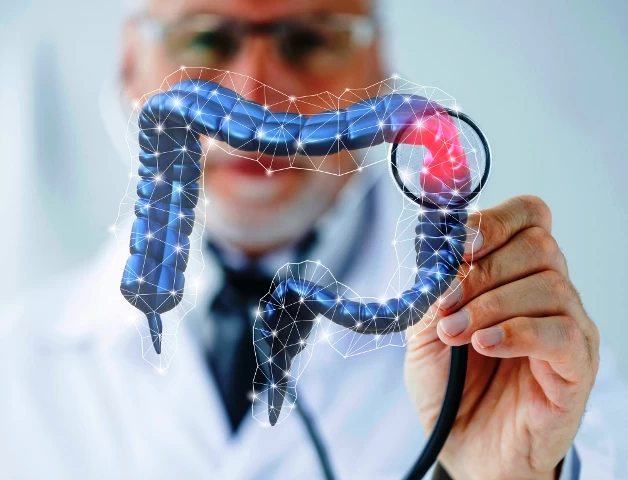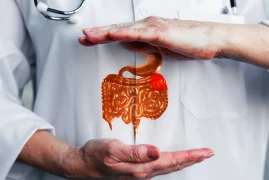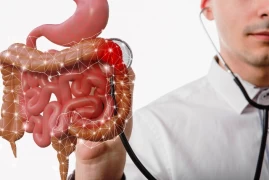
Colon Cancer - Part 2: Diagnosis and Treatment Methods
- Colon Cancer - Part 2: Diagnosis and Treatment Methods
- What Are the Diagnosis Methods for Colon Cancer?
- What Are the Treatment Methods for Colon Cancer?
- How Is the Follow-Up Done for Colon Cancer Patients?
Colorectal cancer is a type of cancer that occurs in the colon or rectum. General surgery specialists provide comprehensive expertise in the diagnosis, treatment, and follow-up of colorectal cancer. In this second part of the third-part article, we will discuss the diagnostic and monitoring methods of the disease.
What Are the Diagnosis Methods for Colon Cancer?
Various medical tests and imaging methods are used for the diagnosis of colon cancer. These methods are employed to detect potential tumors and determine the stage of cancer. Here are some commonly used methods for diagnosing colorectal cancer:
- Physical Examination and Medical History: Healthcare professionals take the patient's medical history and perform a physical examination. At this stage, symptoms and risk factors are assessed.
- Colonoscopy: In this method, the inner surface of the intestine is thoroughly examined using a flexible tube (colonoscope). If necessary, polyps can be removed or a biopsy can be performed.
- Sigmoidoscopy: An examination using another flexible tube called a sigmoidoscope to inspect the lower part of the colon. It covers a shorter area compared to colonoscopy.
- Stool Tests: Stool tests such as fecal occult blood test or DNA-based stool test evaluate colorectal cancer symptoms by detecting hidden blood in the feces.
- Double-Contrast Barium Enema (Barium Enema): X-ray images taken using a liquid containing contrast material and air provide a better view of the inner surface of the intestine.
- Colon CT Scan: Computed tomography is used to visualize the intestines in detail. Advanced CT scans can assess the condition of lymph nodes and surrounding tissues.
- Magnetic Resonance Imaging (MRI): MRI is used, particularly to provide a more detailed image of the pelvic region.
- Positron Emission Tomography (PET): PET scans measure metabolic activity in the body and can detect cancer cells. It is often used in conjunction with other imaging methods.
- Blood Tests: Some blood tests can provide information about colorectal cancer symptoms or immune system responses. For example, carcinoembryonic antigen (CEA) levels can be monitored.
The diagnostic process typically involves a combination of one or several tests. After the diagnosis is made, additional tests may be conducted to determine the stage of the disease. Early diagnosis can increase the treatability of colorectal cancer, so regular health check-ups and recommended screening tests for specific age groups are important. The diagnosis and treatment process is managed by a multidisciplinary healthcare team and customized based on individual cases.
What Are the Treatment Methods for Colon Cancer?
The treatment of colon cancer varies depending on the stage of the disease, type, and overall health of the patient. Typically, a multidisciplinary healthcare team includes surgeons, medical oncologists, radiation oncologists, and other specialists. Treatment methods for colon cancer may include:
- Surgical Intervention: Surgery is one of the most commonly used methods in the treatment of colon cancer. Surgery may involve removing the tumor, the affected section of the intestine, and lymph nodes. Surgical intervention can vary depending on the stage and location of the disease.
- Chemotherapy: Chemotherapy, using drugs, aims to kill cancer cells or control their growth. It can be used before or after surgery or in conjunction with radiation therapy.
- Radiation Therapy: Radiation therapy, aiming to kill cancer cells using high-energy rays, can be applied, especially before or after surgery.
- Targeted Therapy: In some cases, especially in advanced stages of colon cancer, targeted drugs may be used. These drugs affect cancer cells by focusing on specific targets.
- Immunotherapy: Immunotherapy is a treatment method that strengthens the immune system to help it fight against cancer cells. It has been an area of research in colon cancer treatment.
- Chemoradiation Therapy (Neoadjuvant and Adjuvant Treatment): In some cases, chemotherapy and/or radiation therapy may be applied before (neoadjuvant) or after (adjuvant) surgery. This aims to shrink the tumor or reduce the risk of recurrence after surgery.
- Palliative Care: Palliative care may be applied to some patients with advanced-stage colon cancer. It aims to control symptoms and improve the quality of life.
- Ablation or Endoscopic Mucosal Resection (EMR) with Colonoscopy: Endoscopic methods can be used to remove tumors in early-stage colon cancer.
The treatment plan is determined based on the patient's overall health, the stage and type of cancer, the location of the tumor, and other factors. Treatment often involves a combination and requires a personalized approach.

How Is the Follow-Up Done for Colon Cancer Patients?
After the diagnosis and application of treatment for colon cancer, follow-up is a crucial stage. Follow-up involves regular check-ups to assess the patient's health, monitor possible recurrences, and evaluate treatment outcomes. Follow-up is typically managed by a multidisciplinary healthcare team and tailored to the individual's situation. Here are some methods used for the follow-up of colon cancer patients:
- Colonoscopy: Post-surgery and at specific intervals, colonoscopies may be performed to detect possible tumor recurrences or new polyps.
- Stool Tests: Regular stool tests, such as fecal occult blood tests or DNA-based stool tests, may be conducted to check for visible or hidden blood in the feces.
- Imaging Methods: Imaging methods like CT scans, MRI, and PET scans may be used to evaluate the spread of the disease and possible metastases.
- Blood Tests: Carcinoembryonic Antigen (CEA) levels can be used in the follow-up of colon cancer patients. The levels of this protein can be indicative of the risk of recurrence after treatment.
- Clinical Examination: Regular clinical examinations conducted by healthcare professionals are essential to assess the overall condition of the body. Lymph nodes, abdominal areas, and other significant regions are examined.
- Rectal Examination: Rectal examination is used to assess the physical condition of the rectum. This is particularly important in cases of rectal cancer.
- Continuation of Chemoradiation or Chemotherapy: In some cases, post-surgery chemoradiation or chemotherapy may be applied to reduce the risk of recurrence or provide post-treatment survival advantages.
- Psychosocial Support: Follow-up for colorectal cancer patients should not only focus on physical health but also address the emotional and psychosocial needs of the patient. This includes providing support for the patient and their family in coping with the disease.
The follow-up process is conducted at regular intervals to assess the patient's treatment response, detect recurrences early, and optimize health conditions. The follow-up plan is determined considering the patient's overall health, treatment history, and characteristics of the cancer. Patients should maintain regular communication with healthcare professionals during the follow-up process and adhere to the established follow-up plan.
Looking forward to meeting you in the third and final part of my series on Colon Cancer.
Stay healthy…

Op. Dr. Kadir DİCLE
General Surgery Specialist





